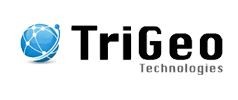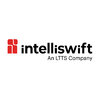328 Cloud Counselage Jobs

DevOps Intern
Cloud Counselage
posted 5mon ago
Job Role Insights
Flexible timing
Key skills for the job
Job Description
As a DevOps Intern, youll have the opportunity to gain hands-on experience in the intersection of software development (Dev) and IT operations (Ops). Your role will involve supporting the development, deployment, and maintenance of software applications and infrastructure using DevOps practices and tools. Heres a breakdown of typical responsibilities and skills associated with this role:
Key Responsibilities:
- Infrastructure Provisioning: Assist in provisioning and configuring infrastructure resources, such as servers, databases, and networking components, using infrastructure-as-code (IaC) tools like Terraform or CloudFormation.
- Continuous Integration/Continuous Deployment (CI/CD): Support CI/CD pipelines to automate the build, test, and deployment processes of software applications using tools like Jenkins, GitLab CI/CD, or GitHub Actions.
- Configuration Management: Assist in managing configuration files and environments using tools like Ansible, Puppet, or Chef to ensure consistency and repeatability across development, testing, and production environments.
- Monitoring and Logging: Help set up monitoring and logging solutions to track system performance, detect issues, and troubleshoot problems using tools like Prometheus, Grafana, ELK Stack (Elasticsearch, Logstash, Kibana), or Datadog.
- Containerization and Orchestration: Gain experience with containerization technologies like Docker and container orchestration platforms like Kubernetes to deploy and manage containerized applications at scale.
- Version Control: Learn version control concepts and practices using Git for managing source code repositories, collaborating with team members, and tracking changes.
- Collaboration and Communication: Work collaboratively with development, operations, and other cross-functional teams to understand requirements, share knowledge, and contribute to the overall success of projects.
- Security: Gain awareness of security best practices and tools for securing infrastructure, applications, and data in a DevOps environment, including vulnerability scanning, access control, and compliance monitoring.
Key Skills and Qualifications:
- Linux/Unix Fundamentals: Basic understanding of Linux/Unix operating systems, command-line tools, and shell scripting for system administration and automation tasks.
- Scripting Languages: Familiarity with scripting languages like Bash, Python, or PowerShell for automating routine tasks and system administration tasks.
- Cloud Computing: Knowledge of cloud computing platforms like AWS, Azure, or Google Cloud Platform (GCP) and their services for building and deploying scalable, resilient, and cost-effective solutions.
- Continuous Integration/Continuous Deployment (CI/CD): Understanding of CI/CD principles and experience with CI/CD tools like Jenkins, GitLab CI/CD, or GitHub Actions for automating software delivery pipelines.
- Containerization and Orchestration: Basic understanding of containerization concepts (e.g., Docker) and container orchestration platforms (e.g., Kubernetes) for deploying and managing containerized applications.
- Version Control: Familiarity with Git for version control, including branching, merging, and collaborating with team members using Git workflows.
- Problem-Solving: Strong problem-solving skills to troubleshoot issues, debug errors, and implement effective solutions in a fast-paced environment.
- Communication: Effective communication skills to articulate ideas, ask questions, and collaborate with team members and stakeholders effectively.
Employment Type: Full Time, Permanent
Read full job descriptionPrepare for DevOps Intern roles with real interview advice
What people at Cloud Counselage are saying
DevOps Intern salary at Cloud Counselage
reported by
4
employees

₹1
L/yr - ₹3
L/yr
31%
less
than the average DevOps Intern Salary in India
View more details
What Cloud Counselage employees are saying about work life
based on 25 employees
Flexible timing
Monday to Friday
No travel
Similar Jobs for you
Share an Interview
































